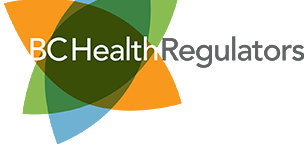There are 29 practitioner groups overseen by BC’s six health regulatory colleges:
- Acupuncturists
- Audiologists
- Chiropractic Doctors (chiropractors)
- Certified Dental Assistants
- Dental Hygienists
- Dentists
- Dental Technicians
- Dental Therapists
- Denturists
- Dietitians
- Hearing Instrument Practitioners
- Massage Therapists
- Midwives
- Naturopathic Physicians (naturopaths)
- Nurse Practitioners
- Nurses
- Occupational Therapists
- Opticians
- Optometrists
- Pharmacists
- Pharmacy Technicians
- Physical Therapists (physiotherapists)
- Physicians and Surgeons
- Podiatric Surgeons (podiatrists)
- Practical Nurses
- Psychiatric Nurses
- Psychologists
- Speech-Language Pathologists
- Traditional Chinese Medicine (TCM) Practitioners
Additionally, Registered Social Workers are overseen by the BC College of Social Workers.
Regulated health professionals’ requirements:
- Pass national and/or provincial entry-to-practice exam(s) and be familiar with the legal, professional, and ethical practice of their profession;
- Be registered with their regulatory college and renew registration annually;
- Be a college registrant to use certain “protected” professional titles;
- Comply with college bylaws;
- Comply with a code of ethics;
- Adhere to the scope of practice they can undertake within their professional limits;
- Meet quality assurance requirements;
- Meet professional standards of practice;
- Be subject to a complaints and discipline process if standards are not met; and
- Undertake a criminal record check every five years.
The Province of British Columbia has passed new legislation to modernize the provincial framework for health profession regulation. The Health Professions and Occupations Act (HPOA) received Royal Assent on November 24, 2022.
When the HPOA comes into force (date to be determined by Cabinet), it will replace the current Health Professions Act (HPA). Until then, colleges will continue to operate under the existing HPA.
The new Act was informed by recommendations outlined in the 2020 report Recommendations to modernize the provincial health profession regulatory framework, which included a recommendation to reduce the number of regulatory colleges through amalgamation. As of June 2024, there are six health profession regulatory colleges operating under the HPA.
